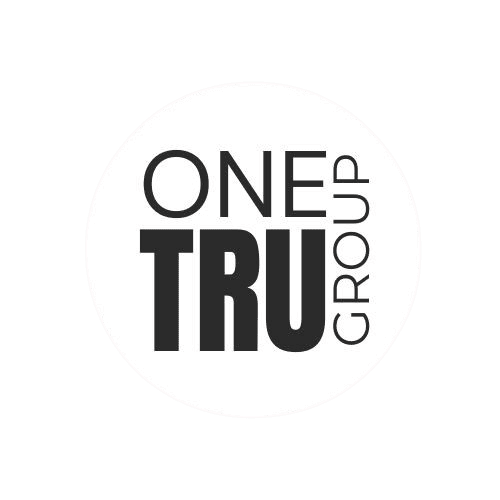What is Media Process Outsourcing?
Media Process Outsourcing (MPO) refers to the practice where companies delegate specific media-related tasks to third-party service providers. This model has become increasingly popular in the modern media landscape due to its ability to streamline operations and enhance overall efficiency. MPO encompasses a variety of processes including content creation, editing, distribution, and management, all of which contribute to the production and dissemination of media products.
In today’s digital age, the role of technology is critical in facilitating MPO. Various software tools and platforms enable seamless collaboration between businesses and their outsourced partners, ensuring that projects are completed within set timelines and adhere to quality standards. This technological integration also allows for more innovative approaches to content creation, incorporating data analytics and audience targeting, thereby enhancing the engagement of media output.
Companies across different industries, including entertainment, marketing, and education, commonly utilize MPO services. By outsourcing media tasks, organizations can focus on their core competencies while leveraging specialized skills and resources from external providers. This collaboration not only maximizes productivity but also helps in reducing operational costs. Furthermore, by adopting the MPO model, businesses can gain access to a diverse talent pool and advanced technologies that may not be available internally.
Understanding what is Media Process Outsourcing (MPO) and its advantages can provide a comprehensive perspective on its relevance and effectiveness in today’s fast-paced media environment. As the demand for high-quality content continues to rise, the adoption of MPO becomes a strategic decision for companies seeking to maintain competitive advantage and drive growth.
Key Advantages of Media Process Outsourcing
Media Process Outsourcing (MPO) has gained substantial traction as businesses increasingly recognize its numerous advantages. One of the most significant benefits of MPO is the potential for cost savings. By outsourcing media processes, companies can often reduce operational expenses associated with hiring and managing in-house teams. For instance, instead of investing in full-time staff, equipment, and technology, businesses can partner with specialized agencies that provide these services at a lower overall cost, yielding substantial financial relief.
Additionally, MPO can enhance efficiency in media operations. When companies assign media tasks to experts, they can benefit from streamlined workflows, enabling a more focused approach to project execution. A notable example is a mid-sized marketing firm that outsourced its video production processes. By doing this, the firm not only saved time but also boosted its project delivery speed, leading to satisfied clients and increased referrals. This enhanced efficiency often translates to improved outcomes, as dedicated teams bring experience and refined processes to the table.
Access to specialized skills is another substantial advantage of MPO. Media processes can be complex, requiring various competencies such as graphic design, video editing, and social media management. By outsourcing, companies can leverage the expertise of professionals who are proficient in these areas, enhancing the quality of their media content. For example, a company looking to revamp its branding might outsource graphic design tasks to a firm with a strong portfolio in that area, achieving results that an in-house team with limited expertise might struggle to accomplish.
Lastly, MPO affords companies the scalability required in today’s fast-paced market. As businesses grow or projects fluctuate, they can easily adjust their media support according to demand, without the constraints of overhead costs associated with permanent staffing. This flexibility is particularly beneficial during peak seasons or product launches when media requirements can skyrocket. Overall, embracing media process outsourcing provides organizations with strategic advantages that can propel their media operations to new heights.
MPO vs. Traditional Media Operations
Media Process Outsourcing (MPO) and traditional media operations represent two distinct approaches to managing media tasks within organizations. Traditional media operations typically involve in-house teams responsible for handling various media processes, such as planning, production, and distribution. However, organizations often encounter significant limitations with this model. One prominent challenge is resource constraints. Companies frequently find that their internal resources—both financial and human—are insufficient to tackle all media-related activities effectively.
In addition to resource limitations, skill gaps pose another major hurdle for organizations relying on traditional media operations. The media landscape is continuously evolving, and staying abreast of new trends, technologies, and best practices requires specialized skills. In-house teams may lack the expertise necessary to adapt quickly to these changes, resulting in suboptimal outcomes. Conversely, MPO harnesses the specialized knowledge and capabilities of external providers. These professionals possess the requisite skills and are well-versed in industry developments, ensuring that companies can maintain high-quality media production without the burden of training or hiring new employees.
Time consumption also plays a crucial role in determining the efficacy of media management. Traditional operations often require lengthy timelines to execute projects, particularly when coordinating multiple stakeholders across departments. This inefficiency can delay campaigns and impact organizational goals. MPO alleviates this issue by providing established workflows that streamline processes, allowing for faster turnaround times. Companies can thus respond to market dynamics more rapidly without sacrificing quality.
Ultimately, while traditional media operations have their merits, the challenges they pose—resource constraints, skill gaps, and time consumption—highlight the increasing appeal of media process outsourcing as a practical alternative. Understanding what is MPO and its advantages is essential for organizations looking to remain competitive in an ever-changing media environment.
Future Trends in Media Process Outsourcing
The landscape of Media Process Outsourcing (MPO) is undergoing profound transformations driven by technological advancements. One of the most significant trends shaping the future of MPO is the integration of artificial intelligence (AI). As AI technologies mature, they offer enhanced capabilities in content creation, curation, and analytics. Businesses that embrace AI within MPO services can expect streamlined workflows, improved efficiency, and bespoke product offerings tailored to specific audience preferences. This capability not only heightens the quality of media outputs but also reduces time to market, allowing organizations to remain agile in an ever-competitive environment.
Another critical trend is the rise of automation in media processes. Automation tools are revolutionizing the way companies manage vast amounts of data, provide customer support, and execute marketing campaigns. By leveraging these automated systems, organizations can minimize manual intervention, resulting in cost efficiency and enhanced accuracy. Moreover, automation in MPO can facilitate real-time data processing and analysis, which is vital for strategizing and keeping pace with consumer behavior and market demands.
Data analytics is also becoming a cornerstone in the evolution of MPO. The ability to derive actionable insights from large datasets enables companies to tailor their media strategies effectively. Understanding audience preferences through data can inform content development and distribution, ensuring that the right message reaches the right audience at the right time. This level of precision is paramount for businesses looking to maximize their return on investment from media processes.
In conclusion, the future of Media Process Outsourcing is poised for innovative approaches, largely influenced by developments in AI, automation, and data analytics. Companies that are mindful of these trends can unlock new opportunities for innovation and maintain a competitive edge within the dynamic media landscape. By adopting these advancements, businesses can enhance their media processes and thrive in an increasingly digital marketplace.





